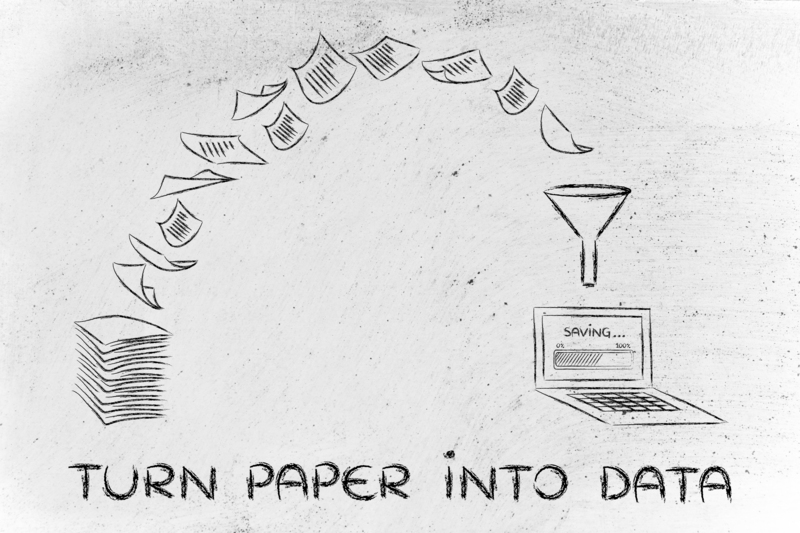Eco-Friendly Methods to Minimize Home Waste
Living a sustainable lifestyle has become increasingly important in today's world. One of the easiest and most impactful ways to contribute to a cleaner planet is by reducing the amount of waste generated in our homes. Eco-friendly ways to minimize home waste not only help the environment but also save money and promote better living practices. In this comprehensive article, discover practical, effective, and innovative strategies that you can implement immediately to minimize waste at home.

Why Should We Reduce Home Waste?
Every day, the average household produces a substantial amount of waste--much of which ends up in landfills, contributing to pollution and greenhouse gas emissions. Reducing home waste lowers our carbon footprint, conserves resources, and protects the environment for future generations. Additionally, minimizing household waste can lead to healthier living spaces and more mindful consumption habits.
Simple and Effective Waste Reducing Habits
Start with the 5 R's: Refuse, Reduce, Reuse, Recycle, Rot
- Refuse: Say no to single-use plastics and products you do not truly need.
- Reduce: Be mindful about your purchases and academic your needs to avoid overconsumption.
- Reuse: Find new purposes for items instead of discarding them.
- Recycle: Sort your waste according to your local recycling guidelines.
- Rot: Compost organic waste to minimize landfill contributions.
Following these principles is a key eco-friendly method to minimize waste at home and can be the starting point for transforming your household's environmental impact.
Conduct a Home Waste Audit
Before making changes, observe and track your household waste. For one week, separate and measure your garbage, recyclables, and compostables. Identifying the sources of most waste will help you find the most effective areas to make improvements.
Eco-Friendly Methods to Minimize Kitchen Waste
Buy in Bulk
Purchasing items in bulk reduces packaging waste and often saves money. Use reusable containers and bags when purchasing grains, rice, beans, nuts, and spices. Many stores offer a bulk section for these items.
Adopt a Zero-Waste Grocery Shopping Routine
- Choose fresh produce that is not wrapped in plastic.
- Bring your own reusable grocery bags and produce sacks.
- Opt for products packaged in recyclable or compostable materials.
These habits are essential eco-friendly strategies to reduce home waste from the start.
Compost Organic Waste
Composting diverts food scraps and yard clippings from landfills, reducing methane emissions and producing nutrient-rich soil. Set up a backyard compost bin or use a kitchen countertop composter. Typical items to compost include:
- Fruit and vegetable peels
- Coffee grounds and filters
- Eggshells
- Tea bags
- Yard trimmings
Avoid composting meat, dairy, or oily foods at home, as these can attract pests and create odors.
Smart Meal Planning and Food Storage
- Plan meals ahead: Purchase only what you need to minimize excess and spoilage.
- Use clear containers: Make leftovers visible to avoid forgetting them.
- Understand expiration dates: "Best by" often refers to quality, not safety.
- Save vegetable scraps: Use them to make broths before composting.
Smart food planning reduces both food waste and household expenses.
Eco-Friendly Ways to Minimize Waste in the Bathroom
Switch to Sustainable Personal Care Products
- Bamboo toothbrushes: Replace plastic toothbrushes with biodegradable bamboo options.
- Bar soap and shampoo: Choose package-free soaps and solid shampoo bars to reduce plastic waste.
- Menstrual cups and reusable pads: Opt for reusable menstrual products instead of disposables.
- Refillable containers: Purchase refills for products like lotion or body wash.
Minimize Use of Disposable Products
- Switch to washable cloths instead of paper towels.
- Use razors with replaceable blades instead of single-use versions.
- Purchase toilet paper made from recycled fibers and packaged with minimal or compostable materials.
Reduce Waste in Other Areas of the Home
Eco-Friendly Cleaning Solutions
- Buy in bulk: Choose products with minimal packaging.
- DIY cleaners: Make homemade cleaning solutions using ingredients like vinegar, baking soda, and lemon juice.
- Reusable cleaning cloths: Replace paper towels with washable microfiber or cotton rags.
Homemade cleaners are effective, economical, and reduce plastic bottle consumption.
Mindful Purchasing Habits
- Buy durable goods that are designed to last.
- Read reviews and research before making purchases to avoid buying unnecessary items.
- Borrow or rent items needed infrequently, such as power tools or formalwear.
Conscious consumerism is an eco-friendly way to cut down on home waste at the source.
Declutter Responsibly and Give Items a Second Life
- Donate gently used clothing, electronics, and household items.
- Sell valuable items on marketplaces or local selling apps.
- Participate in local "freecycle" groups to give away usable goods.
Decluttering doesn't have to mean sending things to the landfill. By donating, selling, or giving away items, you contribute to a circular economy.
Innovative and Advanced Eco-Friendly Home Waste Reduction Methods
Set Up a Home Recycling Station
Create a convenient and clearly labeled area in your home for sorting and storing recyclable materials. Make sure everyone in your household knows which materials can be recycled, and check your municipality's recycling guidelines regularly.
Repair and Upcycle Instead of Discarding
- Repair clothing: Mend or alter garments instead of replacing them.
- Upcycle furniture: Transform old furniture into new pieces with paint, new hardware, or creative embellishments.
- Fix electronics: Explore professional repair options or DIY guides before discarding gadgets.
Upcycling and repair help keep items out of landfills and often result in unique, personalized possessions.
Leverage Technology: Smart Home Devices
- Use smart thermostats and LED lighting to reduce energy consumption (and related disposal of inefficient bulbs and batteries).
- Try digital receipts instead of paper wherever possible.
- Adopt cloud storage and digital subscriptions to minimize paper waste from magazines, mail, and receipts.
Educational Initiatives for Sustainable Waste Management at Home
Educate everyone in the household about the impact of waste and the benefits of minimizing it. Encourage children to participate in recycling and composting, and discuss the importance of mindful consumption. Stay informed about new eco-friendly methods to reduce home waste by subscribing to sustainability blogs, attending community workshops, or following environmental organizations.
Practical Tips for Getting Started
- Start small: Pick one area to focus on, such as the kitchen or bathroom, and implement gradual changes.
- Set realistic goals: Aim to reduce your household waste by a certain percentage each month.
- Reward progress: Celebrate achievements and involve family members in tracking progress.
- Connect with your community: Join or initiate local sustainability groups to exchange tips and inspiration.
Common Barriers To Minimizing Home Waste (and How To Overcome Them)
- Lack of awareness: Start by educating yourself and your family about why eco-friendly practices matter.
- Convenience: Many single-use products are designed for convenience. Prepare reusable options ahead of time--keep bags, mugs, and containers handy.
- Lack of local facilities: Seek out community recycling centers, bulk stores, and compost facilities, or petition for better infrastructure.
- Habit change: Change takes time. Start with small steps and be patient with yourself and others.

Benefits of Adopting Eco-Friendly Waste Reduction Methods
- Environmental Protection: Less landfill waste and reduced pollution.
- Cost Savings: Reduced spending on disposable products and lower utility bills.
- Healthier Home: Fewer chemicals and less clutter equals a healthier living environment.
- Community Impact: Inspire friends and neighbors to adopt sustainable practices.
In summary, embracing eco-friendly ways to limit waste at home benefits not only us but the world at large. Every small action counts, and together, we can build a sustainable future.
Conclusion: Your Path to a Zero-Waste Home
Minimizing home waste is an ongoing journey that starts with simple, thoughtful changes. Whether you're composting kitchen scraps, refusing single-use plastics, or championing community recycling, every effort adds up. Commit to adopting eco-friendly methods to minimize home waste today and create a cleaner, more sustainable environment for generations to come.
- Start your waste reduction journey with one simple habit.
- Share eco-friendly tips with your family and friends.
- Keep learning and adapting new methods as you go.
Together, every home can make a world of difference--one eco-friendly choice at a time!